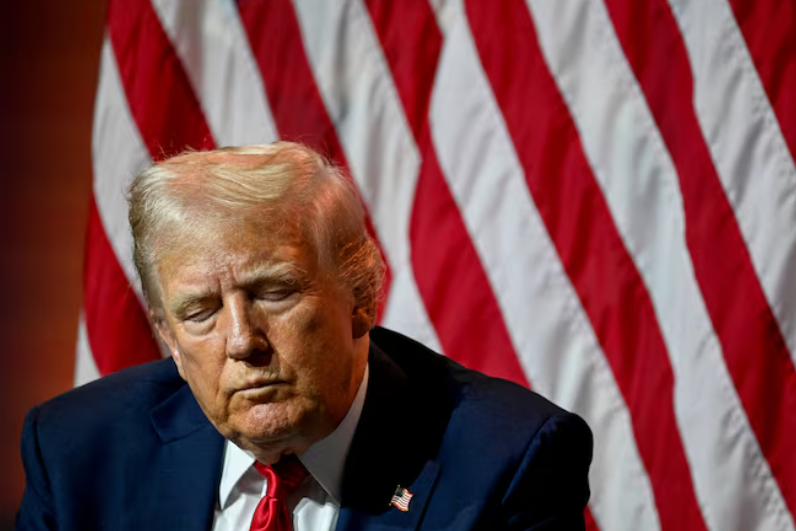The National Treasury Employees Union (NTEU), one of the largest federal labor unions in the country, has filed a lawsuit against the Trump administration, seeking to block an executive order that strips collective bargaining rights from hundreds of thousands of federal employees.
The union argues that the order is an act of “political retribution” by former President Donald Trump and a violation of federal labor laws.
The lawsuit, filed Monday in the U.S. District Court for the District of Columbia, challenges the legality of Trump’s directive, which exempts more than a dozen federal agencies—including the Food and Drug Administration (FDA) and Bureau of Land Management—from collective bargaining laws.
The administration justified the order by asserting that these agencies have a “primary function” in “intelligence, counterintelligence, investigative, or national security work.”
Legal Challenges and Allegations
NTEU argues that the executive order is a thinly-veiled attempt to weaken the federal workforce by making it easier to terminate employees. The complaint also alleges that the order is a retaliatory move against the union for previous legal challenges that stymied the Trump administration’s attempts at mass firings. According to the lawsuit, multiple courts have already ordered the reinstatement of thousands of employees who were unlawfully terminated under the administration’s policies.
The lawsuit cites a White House Fact Sheet as evidence of political motivations, which states that “[c]ertain Federal unions have declared war on President Trump’s agenda” and that the largest federal union is “fighting back against Trump” through grievances and litigation. The complaint argues that this language demonstrates a clear intent to retaliate against federal unions rather than address legitimate national security concerns.
Potential Impact on Federal Workforce
If implemented, the executive order would not only remove collective bargaining protections but also halt payroll deductions for union dues, which account for over half of NTEU’s revenue. The union contends that this financial blow would severely hinder its ability to negotiate on behalf of federal employees, advocate for improved workplace policies, and litigate disputes.
Historically, presidents have issued executive orders to exempt specific offices within federal agencies from collective bargaining laws due to their security functions. However, NTEU’s lawsuit emphasizes that “no President has ever exempted an entire Cabinet-level agency—let alone multiple Cabinet-level agencies.” The order, the union claims, could leave as much as two-thirds of the federal workforce without unionization rights.
Legal Arguments and Relief Sought
The 33-page complaint argues that Congress explicitly granted federal employees the right to collective bargaining and provided only narrow exceptions for exclusions based on national security concerns. The lawsuit asserts that Trump’s order exceeds these statutory limitations and was instead driven by political motives.
NTEU seeks a court order declaring the executive order unlawful, preventing it from taking effect, and enjoining federal agency heads from implementing its directives.
Statement from NTEU President
In a statement regarding the lawsuit, NTEU National President Doreen Greenwald criticized the executive order as an effort to silence federal employees and undermine public services.
“The law plainly gives federal employees the right to bargain collectively, and the shocking executive order abolishing that right for most of them, under the guise of national security, is an attempt to silence the voices of our nation’s public servants,” Greenwald said. “It is also a continuation of the administration’s efforts to deny the American people the vital services that these talented civil servants provide by making it easier to fire them without any pushback from their union advocates.”
The lawsuit represents a significant legal battle over the rights of federal employees and the extent of executive power in labor relations. As the case moves forward, it is likely to set an important precedent regarding the balance between national security considerations and the statutory protections afforded to federal workers.

